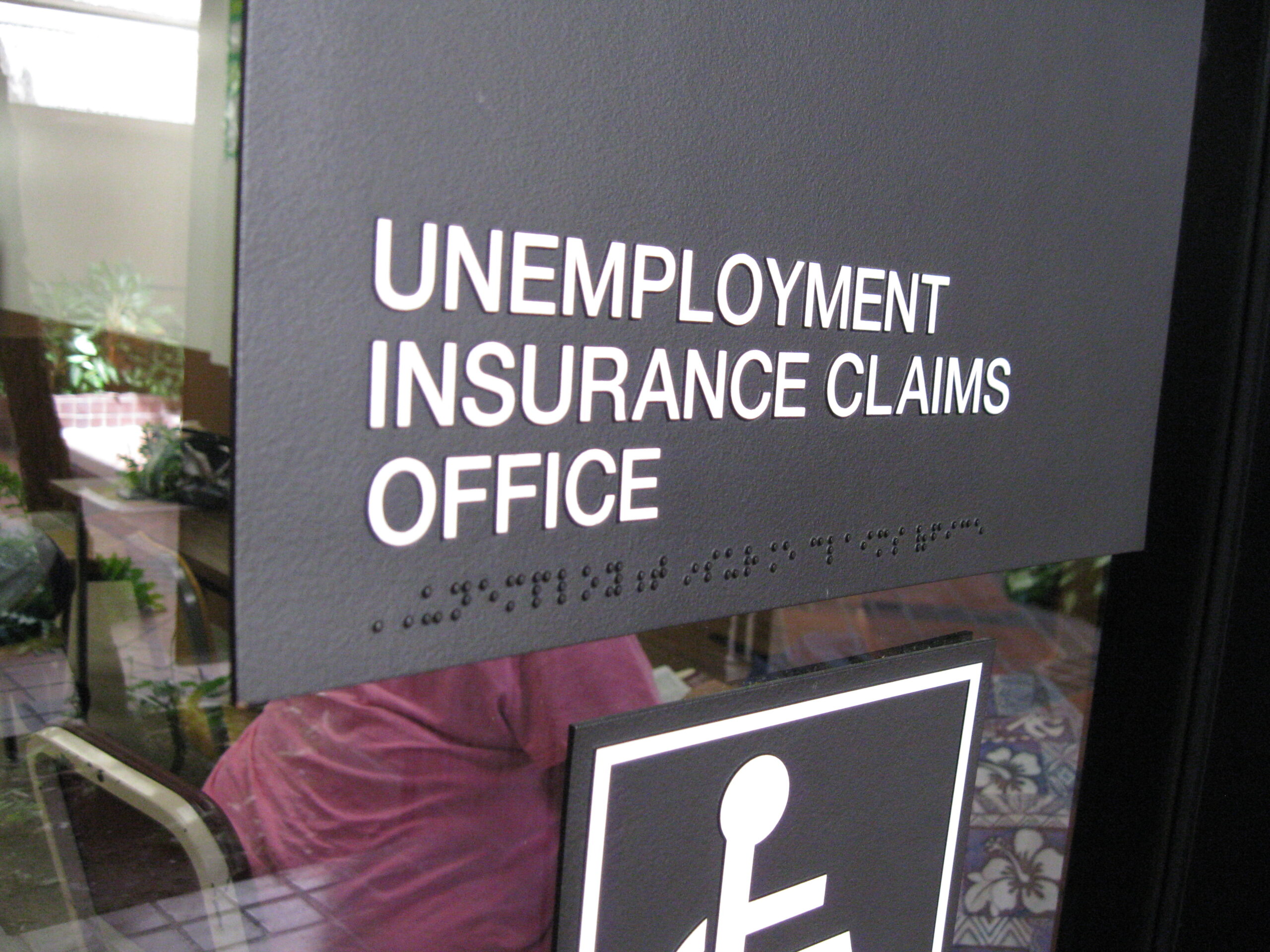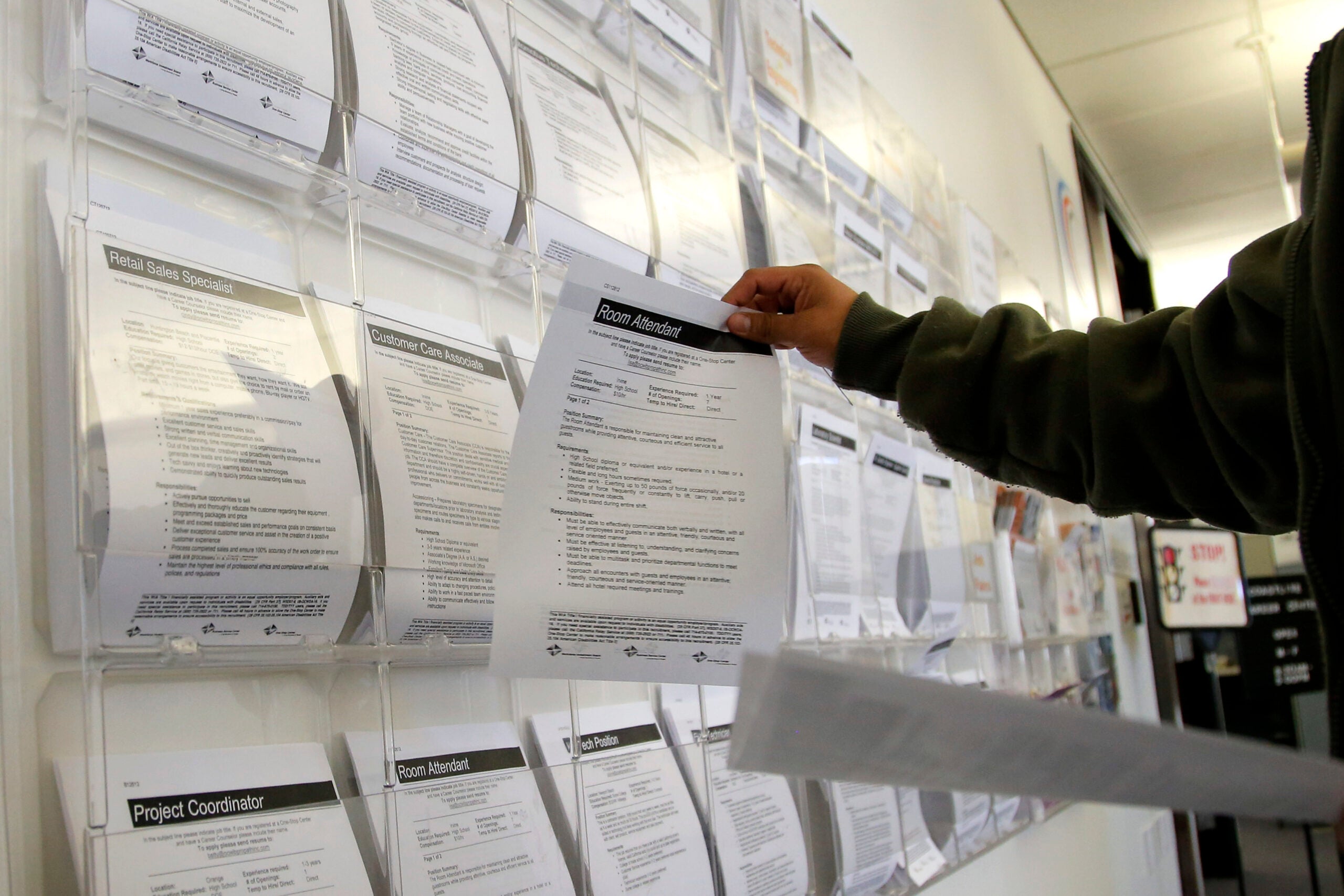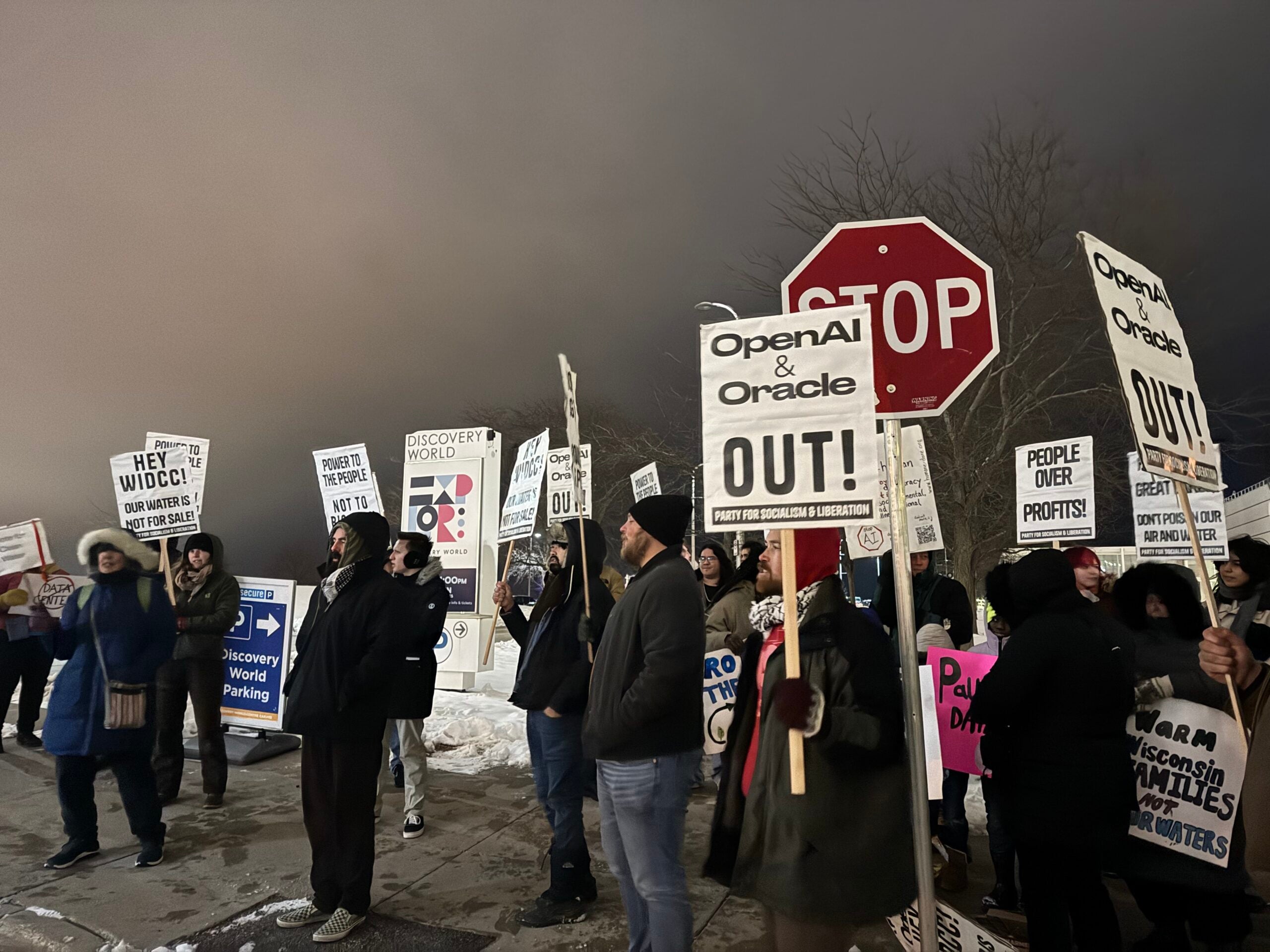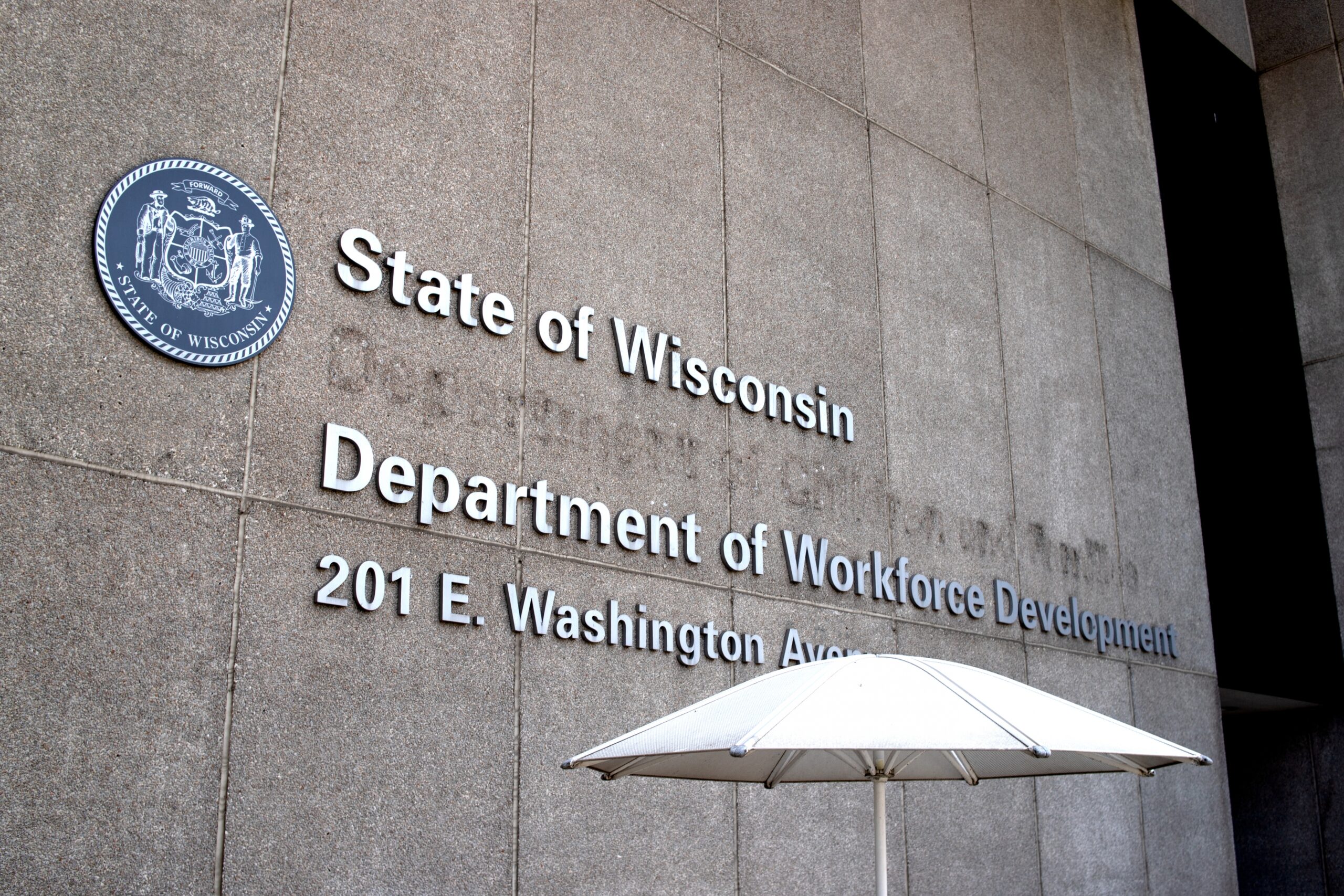Dawn Gleason estimates she’s called the state Department of Workforce Development’s unemployment call center between nine and 12 times since late December.
Gleason, a single mother in Franklin who had breast cancer last year, lost her job as the manager of a limousine dispatch service in March. She was relying on unemployment insurance to get by until those benefits ran out in December.
On one call to DWD’s help line, Gleason said she was told her new benefits would be paid by the beginning of January. That never came to pass.
News with a little more humanity
WPR’s “Wisconsin Today” newsletter keeps you connected to the state you love without feeling overwhelmed. No paywall. No agenda. No corporate filter.
On the next call, a different representative told Gleason there was no date set for when her benefits would be paid — information that was correct at the time. But then, the call center staffer informed Gleason she would be required to pay back $1,800, a portion of her past benefits.
“That I just couldn’t believe,” Gleason said. “I was irate.”
Gleason, along with many other Wisconsinites, reached out to WPR’s WHYsconsin with questions about how and when they will receive their unemployment benefits.
In subsequent calls to DWD, Gleason was told first she is not eligible for new benefits, only to call again and be told she is eligible.
“I’ve just been so frustrated wondering … who’s right?” Gleason said. “Was it the first operator or was it the third operator?”
Complaints about incorrect and contradictory information from staff at DWD’s call center are widespread among jobless Wisconsinites relying on the state’s unemployment system, according to interviews with multiple unemployment recipients and numerous posts on online unemployment support groups.
Some say those experiences have taught them that, as they try to navigate the state’s complex and arcane unemployment system, they cannot rely on information they get from the government agency in charge of that system.
Gina Mahnke, a Greendale resident who has been out of work as an Uber driver since March, said she’s gotten wrong information, had a claim filed for her erroneously, and been hung up on by call center staff.
“Honestly, don’t answer the phone if you can’t answer our questions,” Mahnke said.
‘Well That’s The Law’
At times, unemployed workers say the faulty information is related to questions about their individual unemployment situations. But they also say it includes misunderstandings of widely publicized changes to unemployment policy.
In August, former President Donald Trump created the Lost Wages Assistance (LWA) program, which gave unemployment recipients in Wisconsin an extra $300 a week on top of their state-level benefits.
When Gleason was told she would have to pay $1,800 of her benefits back, the call center representative was referring to benefits she received under LWA. Gleason said the representative told her the Federal Emergency Management Agency (FEMA), which funded the program, was recouping the money.
“She said, ‘Well, that’s the law … that’s how they’re doing this,’” Gleason said.
In a statement Monday to WPR, FEMA confirmed this is not accurate. A FEMA spokesperson said the agency has “not asked for funding back from states that was properly administered to individuals under the Lost Wages Assistance program.”
Mahnke said she was misinformed over another set of benefits created recently by Congress.
In the second round of federal coronavirus relief, lawmakers in Congress granted unemployment recipients an extra 11 weeks of unemployment benefits under two programs: Pandemic Emergency Unemployment Compensation (PEUC), which extends the amount of time someone can claim unemployment; and Pandemic Unemployment Assistance (PUA), for self-employed and contract workers.
Those extra benefits, which were signed into law Dec. 27, mean jobless workers who had previously exhausted their benefits under both programs are allowed nearly three extra months of benefits.
But Mahnke said recently a staffer with DWD’s call center incorrectly told her out-of-work Wisconsinites would not be getting that 11-week extension.
“(The representative) was like, ‘They didn’t sign the bill for that, they only signed the bill to give the $300 extra to people that are already getting benefits,’” Mahnke recounted.
In addition to the 11-week extension under PEUC and PUA, Congress passed legislation that supplements unemployment benefits by $300 a week.
When DWD has finished setting them up, Wisconsinites will have access to the new benefits under all three programs.
Recipient Told She ‘Did Not Qualify’ To Speak To Supervisor
Requests to speak to call center staff who have more information have also been unsuccessful, and at times, have even been met with pushback.
Gleason said she was once told she “did not qualify” to speak to a supervisor, and later was told there was no supervisor available to talk to her.
Robert Orozco, a Milwaukee resident who was stuck in the unemployment backlog for close to five months last year, said when he called, he was routinely told a “specialist” would be able to help him, only to be told by that person that he was misinformed and that he’d have to wait for someone else to help him.
“There’d be a lot of false lights at the end of the tunnel where they would say … ‘If I transfer you to here, they should be able to resolve this.’ You’d transfer, you’d spend another 30 minutes on the phone waiting to get picked up. It does. They tell you that you were incorrectly informed, and they hung up on you,” Orozco said.
In a state legislative hearing Wednesday, DWD Secretary-designee Amy Pechacek said the department wants to be notified about issues of “quality control.”
“We certainly want to hear about those because the calls are recorded — we can review, and we do review,” Pechacek said. “We will take appropriate remediation and action if needed.”
For call center staffing, DWD contracts with two vendors, Alorica and Beyond Vision, whose staff are often the first stop for triaging calls and answering less complex questions. In an email Monday, DWD said all staff go through rigorous screening processes and must be “experienced, well-trained and skilled.”
The department could not say how often call center staff are found to have given out incorrect information or engaged in rude behavior. But DWD pointed to weekly quality scores each vendor is contractually required to produce. Alorica has weekly quality score percentages in the high 90s, indicating “individuals have been provided the correct information,” which should “result in resolution (of an issue) at the first contact,” according to DWD.
Mahnke and Gleason, both of whom are struggling to meet their basic expenses and provide for their families, said they’ve had a different experience. Both said the faulty information they receive adds an incredible amount of a stress to a situation that is already stressful.
“I don’t know who’s right. I don’t know who’s wrong. I don’t know if I’ll ever see a check,” Gleason said, adding she stays up at night thinking about her unemployment claims. “It makes a difference between a food bank and a grocery store.”






